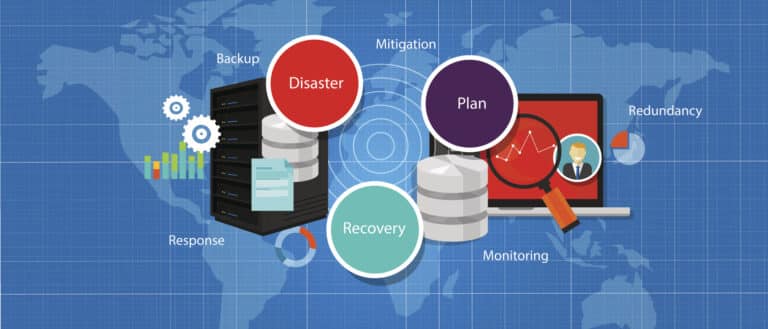What is a Tabletop Exercise?
A tabletop exercise is a simulated scenario that brings together team members to discuss and strategize how they would respond to a particular crisis or emergency situation such as a cybersecurity incident. The tabletop exercise can be used as a vehicle to test your cybersecurity incident response plan, business continuity plan, and/or disaster recovery plan. These exercises occur in a controlled environment where participants can focus on communication, decision-making, and problem-solving without the constraints of real-world stressors. Facilitated by an expert, the discussions often revolve around predetermined crises relevant to the organization’s operational landscape.
By simulating potential critical incidents, organizations gain insights into their readiness and identify gaps in plans or resources. This exercise allows teams to strengthen their response frameworks and recovery plans while fostering collaboration among various departments. The greatest benefit of a tabletop exercise lies in its ability to promote critical thinking and creative solutions within a safe space—ensuring that when actual critical incidents arise, teams are better prepared to act effectively and efficiently under pressure.
Benefits of Conducting Tabletop Exercises
Tabletop exercises offer organizations a structured environment to test their emergency response plans and identify potential gaps in preparedness. By simulating real-life scenarios, these exercises facilitate critical discussion among team members, encouraging collaboration and communication. Participants can explore their roles and responsibilities in a low-stakes setting, which enhances confidence and clarity when faced with an actual crisis.
One of the key benefits of tabletop exercises is the ability to evaluate decision-making processes under pressure. Teams can assess how well they respond to evolving situations, allowing them to refine strategies for effective action in high-stress environments. Additionally, these exercises provide valuable insights into resource allocation and logistical challenges that may arise during a critical incident, ensuring that organizations are better equipped to address unforeseen complications.
Furthermore, tabletop exercises foster a culture of continuous improvement by promoting ongoing training and preparation. Regularly engaging team members in these simulations helps instill resilience within the organization. This proactive approach not only prepares teams for emergencies but also enhances overall operational efficiency—ultimately safeguarding both people and assets against potential crises.
Common Scenarios Tested in Tabletop Exercise Simulations
In tabletop exercises, common scenarios often include natural disasters or cybersecurity attacks. These scenarios allow organizations to assess their preparedness and response strategies in a controlled environment. For instance, simulating a cybersecurity incident can unveil gaps in data protection measures and communication protocols that might otherwise go unnoticed until an actual breach occurs.
Another prevalent scenario involves coordinating responses among multiple departments during a crisis. This tests internal communication, resource allocation, and decision-making under pressure. By replicating these high-stakes situations, organizations can identify areas for improvement in collaboration and streamline their incident response plans. The insights gained from these simulations are invaluable for fostering resilience and ensuring that teams are equipped to handle real-world challenges effectively.
Continuous Improvement After the Exercise
After a tabletop exercise, the focus should shift to continuous improvement to enhance organizational resilience. This involves a thorough debriefing process where participants analyze their performance and identify areas for growth. By gathering feedback from all stakeholders, organizations can spot patterns in decision-making and communication flaws that may otherwise go unnoticed.
Implementing lessons learned through actionable plans is crucial for ongoing development. Establish metrics to measure improvements over time; this not only tracks progress but also fosters accountability among teams. Additionally, by scheduling regular follow-up exercises or workshops, organizations can reinforce their commitment to preparedness and ensure that knowledge remains fresh and applicable in real-world scenarios. Ultimately, continuous improvement transforms insights gained from tabletop exercises into strategic advantages, enabling organizations to better navigate potential crises.
Strengthening Your Cyber Resilience
Strengthening your cyber resilience requires a multi-faceted approach that goes beyond mere compliance or best practices. It involves fostering a culture of awareness and preparedness within your organization. Regular tabletop exercises play a pivotal role in this process, enabling teams to simulate potential cyber incidents and evaluate their response strategies in real-time. This hands-on experience identifies gaps in processes and enhances communication among stakeholders, ensuring that everyone is equipped to act decisively when faced with an actual threat.
Additionally, investing in continuous learning and adaptation is crucial for maintaining resilience. As cyber threats evolve, so too must your defense mechanisms. Leverage insights gained from tabletop exercises to refine policies, update training programs, and implement new technologies that bolster security measures. A proactive approach not only minimizes risk but also instills confidence in employees and clients alike, demonstrating your commitment to safeguarding sensitive information against emerging threats.
Contact us to learn more about our TableTop Exercise Service!







